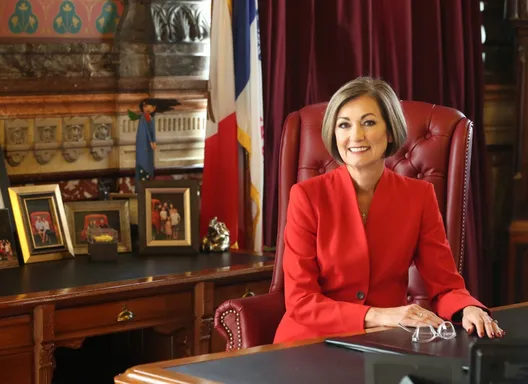 |
| (Source: Wikimedia.org under Creative Commons license) |
Here's what we know about Iowa in 2019: Of its roughly 54,000 square miles, roughly 50,000 of them contain places that are losing population and wealth, and are voting Republican. Republicans have had unified control of state government since 2016 after holding the governor's office and state House since 2010. They renewed control in 2018 despite a Democratic wave nationwide. The Statehouse is pretty much an "office of rural affairs," with urban Democrats at the margins.
So, I'll say with my best Ross Perot voice, "it doesn't take a rocket scientist" to imagine the Governor and legislature putting their best efforts and resources into resuscitating Iowa's struggling small towns, rural areas and small industrial cities. In earlier posts (cited below) I've cited recommendations from researchers on how to do this: support universities, welcome immigration, develop public-private partnerships, small business incubators, improve digital skills, subsidize extension of broadband access, and in desperate cases relocation assistance, a rural housing initiative, and better funding for state agencies (Smith 2018, Hendrickson Muro and Galston 2018, Menner 2018, Florida 2017).
However, what we've seen since 2016 is little-to-no progress on any of these economic initiatives, and a whole lot of crowd-pleasing and tax-cutting. Besides the biggest tax cut in the state's history last year, which will only help the situation if supply-side economics miraculously starts to work, we've seen annual bills restricting abortion--including last year's "fetal heartbeat" bill--as well as de-funding Planned Parenthood, barring sanctuary cities, loosening gun control, ending collective bargaining for public employees, blocking minimum wage increases in urban counties, and cutting the state budget.
This year, according to the Gazette's daily previews, top legislative priorities include holding the line on spending while expanding gun rights, cutting property taxes, legalizing sports gambling, and making the judicial selection process less merit-based and more partisan. How any of this helps the people who are hurting, wherever they are, I can't see, unless they draw some comfort from pissing off liberals.
 |
| Gov. Kim Reynolds (R-Iowa), from governor.iowa.gov |
She ignored all of the ideological red meat on the legislature's table, which was polite, but left me wondering how much of her address actually related to the legislative session just underway.
The Governor nodded at the need for rural economic development, in the usual ways. Virtual connectivity was hailed as the key to retaining young people and keeping rural communities vital, and she's asking for $20 million, so I'll give her that. Second on the list was expanded rural housing tax credits. Oh, and we'll now have an actual office of rural affairs, to be called the Center for Rural Revitalization. She was more personal last year when she said "When I go home, I hear the disappointment and I feel the frustration when another storefront closes." But the hesitation to commit much in the way of state resources to addressing deep-seated local issues is the same. At least we can send them texts when we pass another gun rights bill!
SEE ALSO
"Election 2018 and What Happens Next," 20 November 2018
"What is the Future of Iowa's Small Towns," 3 July 2018 [includes a fair amount of economic data on urban/suburban vs. rural Iowa]
"Condition of the State 2018," 10 January 2018












